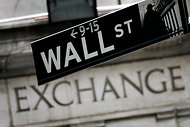The credit reporting agency Moody’s said on Wednesday that it had revised its financial outlook for colleges and universities, giving a negative grade to the entire field.
For the last two years, Moody’s Investors Service gave the nation’s most elite public and private colleges a stable forecast while assigning a negative outlook to the rest of higher education. (Moody’s assigned a negative outlook for the sector in 2009, but it upgraded the most elite ones to stable in 2011-2012.)
On Wednesday, Moody’s explained the change by saying that even the best colleges and universities faced diminished prospects for revenue growth, given mounting public pressure to keep tuition down, a weak economy and the prospect that a penny-pinching Congress could cut financing for research grants and student aid.
The report advocates “bolder actions by university leaders to reduce costs and increase operational efficiency.”
“The sector will need to adjust to the prospect of muted revenue growth,” the report says. “Strong governance and management leadership will be needed by most universities as they navigate through this period of intensified change and challenge.”
While Moody’s gave a negative outlook for the overall industry, most of the nation’s top colleges and universities still carry the top credit rankings.
Nonetheless, the Moody’s report reflects a time of rapid and disruptive change in higher education. Before the financial crisis, colleges and universities routinely raised tuition and fees as administrators sought to burnish their reputations — and the school’s rankings — with new buildings and more student services.
That golden era was upended by the financial crisis. As household income dropped and jobs became scarce for college graduates, families became increasingly vulnerable to college costs and the prospect of students taking on onerous debt. At the same time, institutions could no longer count on an annual windfall from endowment returns, alumni gifts and state financing. All shriveled as the economy soured, and they have not fully recovered.
In the 2011-2012 academic year, for instance, American families spent, on average, 5 percent less on higher education than in the previous year, Moody’s said. As a result, 25 percent of the private colleges that Moody’s rated did not raise tuition in fiscal 2011 at or beyond the rate of inflation; 21 percent of rated public universities did not do so.
Students have become more dependent on federal grants and loans since the financial crisis. Any curtailment of federal aid could put further budget pressures on schools. Pell Grants for low-income students provided $36.5 billion to colleges and universities in fiscal 2011. That represented a median 21 percent of net tuition revenue for regional public universities.
The rapid emergence of online learning provides both opportunities and challenges for higher education, Moody’s said. While online classes could threaten to undermine the residential college model, they could also provide new ways to make money and provide schools with broader audiences.
Moody’s said the average debt burden for full-time students grew 55 percent in the 10 years that ended in 2012. But it maintained that the average debt load was manageable for most students, since 72 percent of student loans were held by borrowers with less than $25,000 in debt. Nonetheless, the report noted that the increasing focus on student debt and college affordability by the media and politicians puts additional pressure on college administrators to rein in costs.
“Until universities demonstrate better ability to lower their cost of operations, perhaps through more intensive use of online classes and elimination or reduction of tenure, we expect government officials to produce bolder solutions in response to the public outcry against the cost of higher education,” the report said.
Article source: http://www.nytimes.com/2013/01/17/business/moodys-outlook-on-higher-education-turns-negative.html?partner=rss&emc=rss
